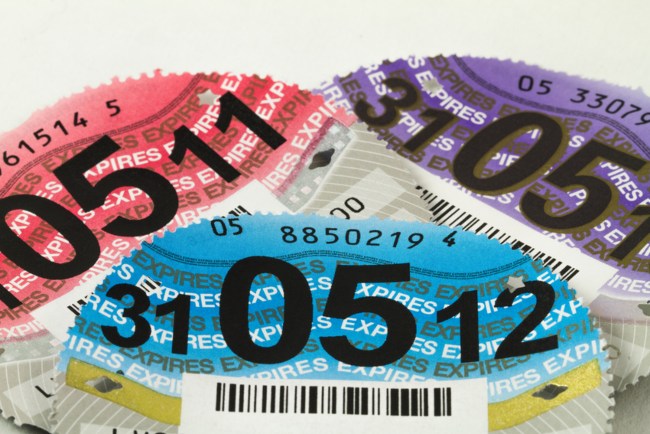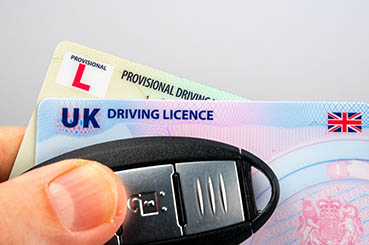Everything you need to know about Car Tax
Some know it as road tax, while others rightly call it VED, but car tax is something that all drivers are affected by in some shape or form.
Since its inception in the early 20th century, car tax has been collected by the Government, though this process has evolved over time as our automotive technology has also developed.
Let’s get into the details of what car tax is and why it is we pay it…
| What is Car Tax? | What does Car Tax pay for? |
| How much is Car Tax? | How do I tax a car? |
| Where did the tax disc go? | How much will Electric Car Tax be? |
| Car Tax FAQs |
What is car tax?

Car tax is more officially known as VED – Vehicle Excise Duty – and was born out of a need to collect funds to look after our roads, as cars became more and more prevalent.
Starting out as a direct way to cover the cost of both the maintenance and creation of our road systems, car tax exists today as a cost to motorists – in essence – as a tax on your vehicle.
The term ‘Vehicle Excise Duty’ was established in 1936, and the system has evolved ever since, with the cost of car tax increasingly becoming a reflection of how efficient a vehicle is.
As a result, regulations such as EU directives to have manufacturers build their cars with engines that meet certain standards have had a notable effect on car tax.
Vehicle Excise Duty being based on emissions has been around since 2001, and the calculations around them have moved with such changes in technology.
For instance, in 2001, average new car emissions were 178g/km of CO2, but this figure has since dropped to circa 125g/km.
A balancing act of ensuring enough money is being brought into government coffers, and the right kinds of cars paying certain amounts, is always at the forefront of what car tax is about, with updates happening every few years as a result.
Car tax bands are also in place to reflect the effectiveness of creating strong signposting for environmental standards. As of writing, it is only zero-emissions vehicles that are car tax-exempt.
What does car tax pay for?
While many might believe the opposite, VED doesn’t go directly to local councils – or even the Department for Transport – in fact, it goes into the same pot of cash as your council tax and other such contributions.
So, while the DoT doesn’t get its funding directly from the public, the Government will allocate a yearly budget to the department for it to spend as required.
Effectively, car tax is not a road tax, but more a tax on the vehicle itself. Whenever you see roads getting repaired, it is not car tax paying for this – the cost allowance for this maintenance is worked out with the rest of the budget for a local council as whole.
When it comes to the enhancement or creation of major road systems, meanwhile, the budget for this work comes out of the total budget handed to the Department of Transport by the Government.
How much is car tax?
This is a fairly fluid question, and the answer you get will depend on a few factors.
Firstly, the age of your car makes a big difference, as there are different rules based on a car’s age.
If your car was registered before April 1 2017, then an older set of rules will apply, while any vehicle registered from this date will be affected by the current stipulations.
Today’s car tax bands are worked out predominantly on the basis of a car’s emissions, while the cost of a vehicle also plays a part – there are also differences in what you’ll pay in the first year of a car being registered to the second year and beyond.
Starting with the part of the equation that deals with emissions, the only car tax-exempt vehicles are those with zero emissions, then after this there is an incremental increase the more emissions your car emits.
Non-EVs will incur a first-year cost based on emissions, followed by an annual standard rate from the second year – EVs currently pay neither of these.
At the cheapest end of the spectrum, vehicles with CO2 emissions between 1-50g/km will require a payment of just £10 for their first year while, at the top end, anyone registering a car with over 255g/km will have a first-year cost of £2,605 to cover.
From the second year onward, things get simpler, as a standard rate of £180 a year will cover pretty much all vehicles that aren’t zero emissions.
However, there is a secondary factor at play when a car costs more than £40,000.
If a car you’re having registered has a list price of over £40,000, then you will incur a supplementary yearly rate of £390 for five years – though this doesn’t start until the car’s second year on the road.
So for anyone in this situation, from the second year, your annual car tax cost will be £570 for five consecutive years. Keep in mind that this supplementary rate is also applicable to zero-emission vehicles that cost over £40,000.
How do I tax a car?
When buying a brand new car, and it is being registered as part of the process, car tax will be taken care of by the dealer you’re purchasing your car from.
If buying a second-hand car, you will be able to arrange car tax on your own, although the dealer may be able to help you sort this as part of the buying process.
To tax a car you already own, you will get a reminder from the DVLA (a V11 reminder letter), which will give you guidance on how best to tax your vehicle, and the easiest and quickest way will be online via the government portal.
The process is straightforward, and you just need the reference number from one of the following:
- a recent reminder (V11) from the DVLA
- your vehicle log book (V5C) – it must be in your name
If you’ve just bought a car privately, then you’ll also be able to use the reference from the green ‘new keeper’ slip that is from the car’s log book.
Where did the tax disc go?
Anyone who was driving before 2014 may very well remember the physical tax disc that went in the corner of our windscreens.
Due to the modernisation of monitoring car tax, such needs became obsolete, and so the tax disc quickly became a thing of the past.
How much will electric car tax be?
Currently, electric vehicles are exempt from paying car tax – though the supplementary rate of £390 a year is still applicable to EVs costing over £40,000.
You’ll still need to ‘get’ car tax when you have an EV, it just won’t cost anything to arrange.
However, beyond April 1 2025, things change – from this point anyone with an EV will need to pay what those in Band B currently pay, which is £10 in the first year, then £180 annually from the second.
As such, those with a brand new EV costing over £40,000 from this point will incur a total annual cost of £570 from the second year for five years.
It is also important to know that this will be backdated to EVs registered from April 1 2017, so any existing EV users are set to be brought into this new bracket come 2025.
Car Tax FAQs
When is my car tax due?
You can find this out on the Government’s online portal – you just need your vehicle’s registration to get started.
Can you tax a car without an MOT?
You will require a valid MOT certificate if you wish to get your car taxed, as driving without an MOT is illegal.
How to tax a car without a V5c document?
You can also use your reference number from a V11 reminder letter that the DVLA will send you when it’s time to renew your car tax.
If you are trying to tax a vehicle you’ve just bought, but have not received the updated V5c document, then you can use the reference from the New Keeper Slip.
Can the police seize my car for having no tax?
The DVLA has devolved powers to the police and local authorities that allow them to seize untaxed vehicles, and take them to a compound where you’ll need to pay a fee to have it released, as well as provide evidence that you have subsequently taxed your vehicle.
Which cars are exempt from car tax?
Vehicles used by those who are disabled are able to claim disability exemption if they meet certain criteria. Meanwhile, vehicles that are used by organisations providing transport for disabled people are also exempt.
Historic vehicles over 40 years old do not have to pay car tax.
Electric vehicles are exempt, but this will change in 2025.
When was road tax abolished?
When Vehicle Excise Duty was brought in in 1936, ‘road tax’ was abolished, as the tax collection from motorists no longer directly paid for the cost of road maintenance.
Do buses pay tax?
Buses do pay VED, but at a discounted rate as they provide a public service.
Why don’t cyclists pay tax?
As previously explored, car tax isn’t a tax to use the roads or pay towards their maintenance – car tax is a tax on the vehicle.
As such, cyclists do not need to pay tax as no equivalent taxation applies to bicycles.
Blog Comments
To view, comment or reply to comments you must be logged into facebook



